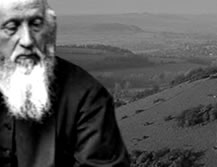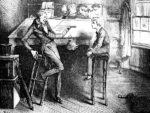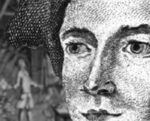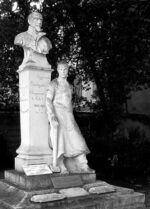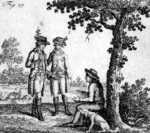Description
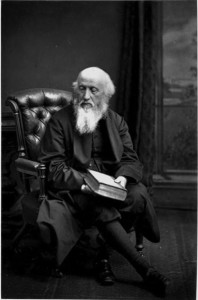 Meet William Barnes (1801-1886), the North Dorset scholar and poet, who taught himself Greek and Latin in order to remove from English what he saw as foreign contamination. But his goal of a purified English speech was politically motivated by his observation of a linguistic apartheid based on and perpetuating class divides.
Meet William Barnes (1801-1886), the North Dorset scholar and poet, who taught himself Greek and Latin in order to remove from English what he saw as foreign contamination. But his goal of a purified English speech was politically motivated by his observation of a linguistic apartheid based on and perpetuating class divides.
After leaving the local school he became first a clerk, then a teacher, then a clergyman, becoming convinced that classical loan-words disempowered working people: in Early England and the Saxon-English, he wrote, ‘What we want for the pulpit, as well as for the book and the platform, for the people, is a pure, homely, strong Saxon-English of English stems, such as would be understood by common English minds and touch English hearts…We should not reach the English mind or heart the more readily by turning “He scattered his foes” into “He dissipated his inimical forces.”’ If necessary, Barnes invented new words to replace Latinisms (‘sunderthink’ for ‘dissent’.
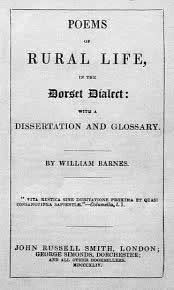 His books on philology (which he called ‘Speechcraft’) argued that Anglo-Saxon, comprehensible by the poor, was adequate for all purposes: ‘the large share of Latin and Greek words in English makes it so much less handy than a purer English would be for the teaching of the poor by sermons and books.’ He was concerned that the educated classes’ passion for classicisms, especially for new inventions (such as ‘photograph’, would lead youth to ‘want an outline of the Greek and Latin
His books on philology (which he called ‘Speechcraft’) argued that Anglo-Saxon, comprehensible by the poor, was adequate for all purposes: ‘the large share of Latin and Greek words in English makes it so much less handy than a purer English would be for the teaching of the poor by sermons and books.’ He was concerned that the educated classes’ passion for classicisms, especially for new inventions (such as ‘photograph’, would lead youth to ‘want an outline of the Greek and Latin
tongues ere he can well understand his own speech.’
Barnes’ own books of pastoral poems, including his touching elegy for his dead wife, were all in Dorset dialect. His obituary in the Saturday Review compared his poems with those of the ancient Greek Theocritus and exposed patronisingly said that the dialect could not hide the delicacy of the verse. Barnes would have been appalled.

